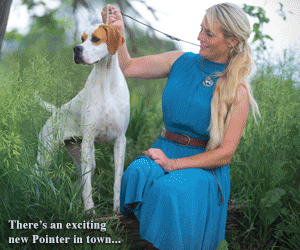Massachusetts: Committee OKs Bill for State to Regulate Owner-Breeders with 8 Female Dogs
AKC Legislative Alert
Yesterday, the Massachusetts Senate’s Ways and Means Committee passed an amended version of Senate Bill 2370, the “Act Relative to Protecting Puppies and Kittens” (previously Senate Bill 1103). The bill could be voted on by the full Senate as soon as Tuesday, June 28.
The new version of this bill makes several changes – including expanded restrictions on dog breeders—to a measure that had been carefully negotiated over several years by a broad range Massachusetts animal groups, including the Massachusetts Federation of Dog Clubs.
All concerned Massachusetts dog owners are encouraged to contact their member of the Massachusetts State Senate and express any concerns they may have with the proposal.
Senate Bill 2370 would allow for the creation of regulations for the operation of certain commercial and private kennels, establish consumer protection laws to cover the purchase of puppies in Massachusetts, expand criteria for inspections, and place limits on the purchase of animals for pet shop resale. It includes:
- Empowering the Department of Agricultural Resources to create rules and regulations for commercial breeder kennels and personal kennels where at least 8 sexually intact female dogs between 1-8 years of age are kept for the purpose of breeding and selling the offspring as household pets. (The Ways and Means committee reduced the previously agreed to threshold of 10 sexually intact female dogs.)
- A prohibition on the transfer of puppies less than eight weeks of age. Violations shall result in a $100 fine per offense.
- Consumer protection provisions that address cases where a veterinarian has declared an animal unfit for purchase (within 14 days of transfer) due to contagious or infectious diseases or severe parasitism that is likely to have been contracted on or before the sale and delivery of the animal, or (within one year of transfer) due to a congenital or hereditary condition that significantly and adversely impacts the health of the animal, requires hospitalization or non-elective surgical procedures, or caused the animal’s death. These protections do not apply to animals acquired from shelters or rescue organizations.
- Exceptions to buyer protections, including cases involving injuries sustained or illnesses likely to have been contracted subsequent to the date or sale or transfer, health problems or hereditary or congenital conditions separately disclosed by the seller verbally and in writing and signed by both the seller and buyer at the time of sale, documentation proving that the parents of animals with hereditary or congenital conditions were screened for health issues established by the Canine Health Information Center or comparable recognized animal health registry, or a finding of non-severe parasitism.
- Remedies for buyers of living animals, including returning the animal, exchanging the animal, or retaining the animal, along with case-dependent financial remuneration. Buyers of deceased animals would be entitled to a replacement animal or refund of the original purchase price plus veterinary fees paid up to the original purchase price. Sellers are not required to provide a buyer with a replacement animal.
- Procedures to allow a seller to challenge a veterinarian’s finding that an animal is unfit for purchase.
- Expanded rules for inspections of kennels. Inspections are to take place between 7AM & 7PM, unless an alternate time is mutually agreed upon by an inspector and a licensee. The licensee must be given prior notice of the inspection (unless deemed necessary to adequately perform the inspection), and the licensee or an authorized representative must be present during the inspection. Inspections at private residences must be limited to areas used for kenneling and for the maintenance of records. Those found with minor violations shall be issued written notice, requiring compliance within a reasonable specified time. Those found with major violations will have their licenses summarily revoked or suspended. Failure of those with minor offenses to come into compliance within the specified time period offered shall have their licenses revoked. Refusal to allow an inspection will also serve as grounds for denial, suspension, or revocation of a person’s kennel license.
- Limiting pet shops from purchasing animals for resale, or selling or offering for sale, animals that originated at or were purchased from a breeder, person, firm, or corporation that is required by law to be licensed under the federal Animal Welfare Act, but is not in possession of a current federal or (if required) state license, that was found to have committed a direct violation of the federal Animal Welfare Act during the two year period prior to purchase, was found to have committed three or more indirect violations of the federal Animal Welfare Act, or has been cited in two most recent USDA inspection reports for no-access violations. Pet shops would also not be allowed to purchase dogs from sources not in compliance with Commonwealth requirements.
- Requirements that pet shops maintain records for two years after the sale of each animal.
- Allowance for localities to adopt ordinances that are stricter than the state’s law.
WHAT YOU CAN DO: All concerned Massachusetts dog owners are encouraged to contact their member of the Massachusetts State Senate and express any concerns they may have with the proposal.
Massachusetts residents: Find your legislator’s contact information by clicking here and entering your location information.
AKC Government Relations will continue to provide updates on this and other pending legislation in Massachusetts. For more information, contact AKC GR at 919-816-3720, or email doglaw@akc.org.
Short URL: https://caninechronicle.com/?p=107001
Comments are closed












